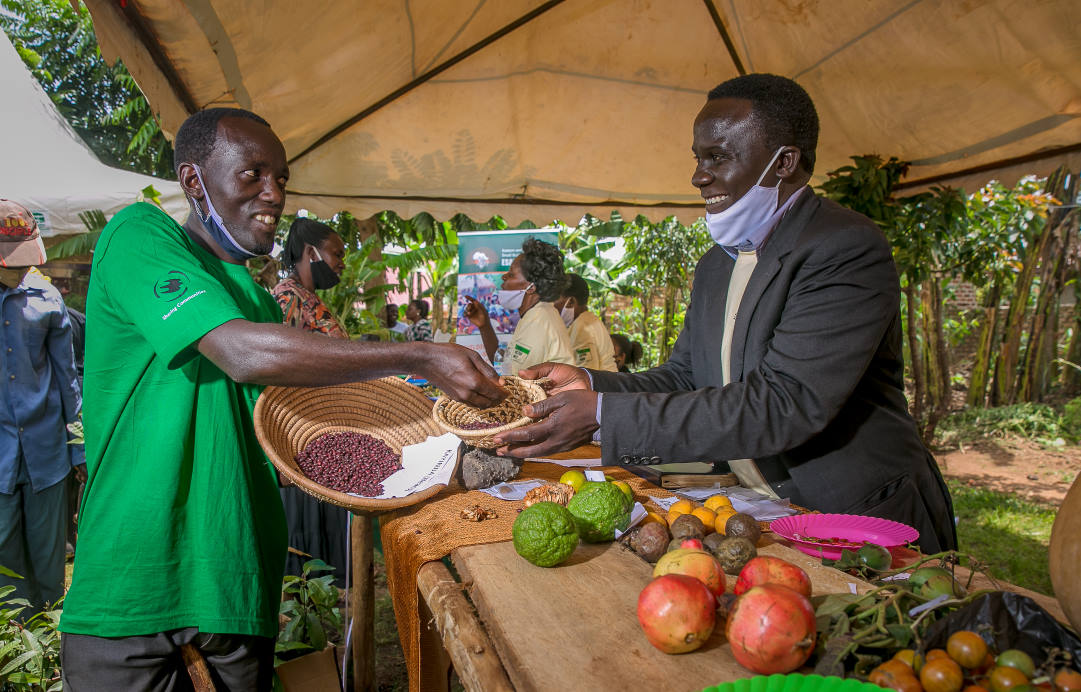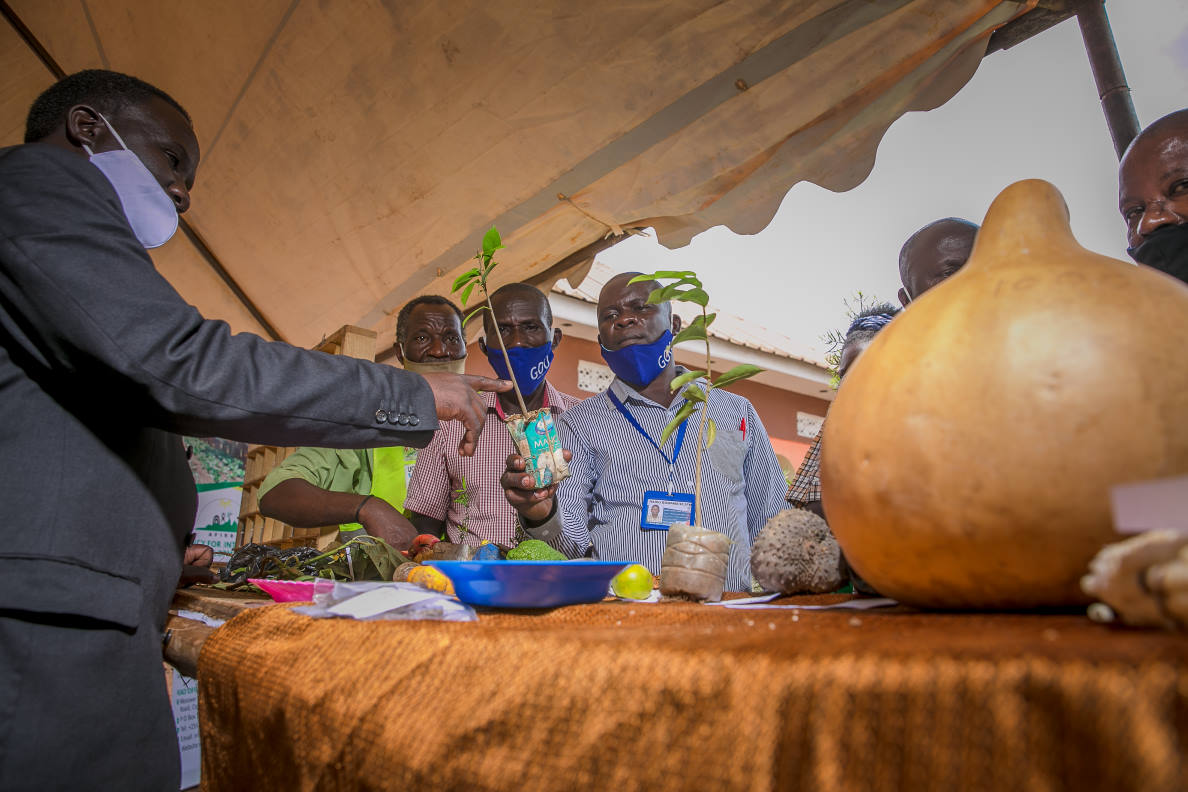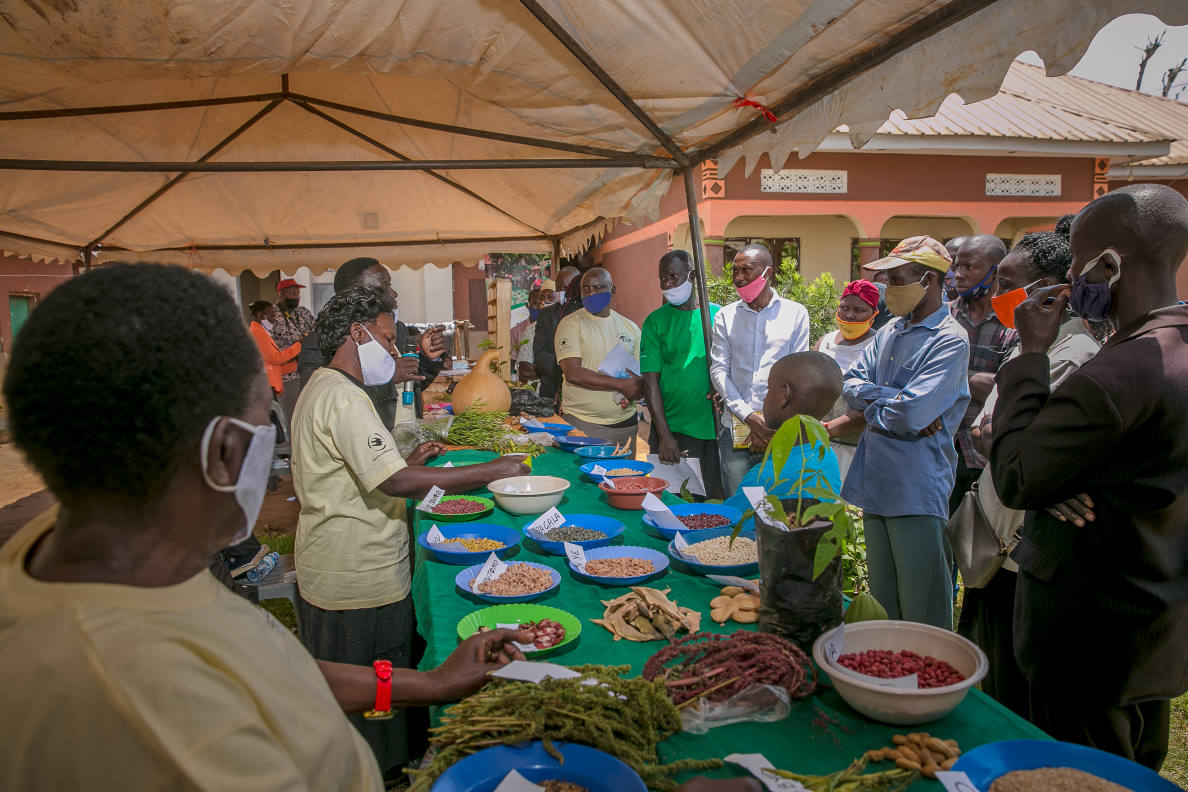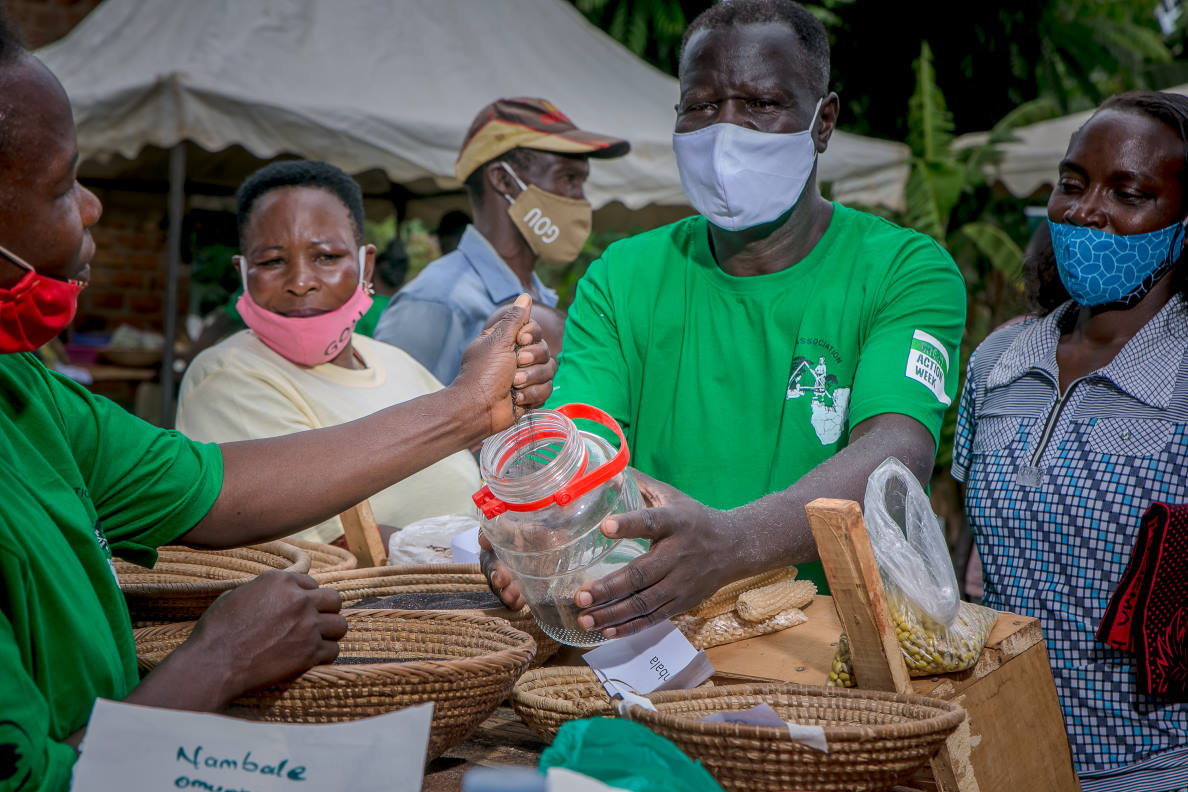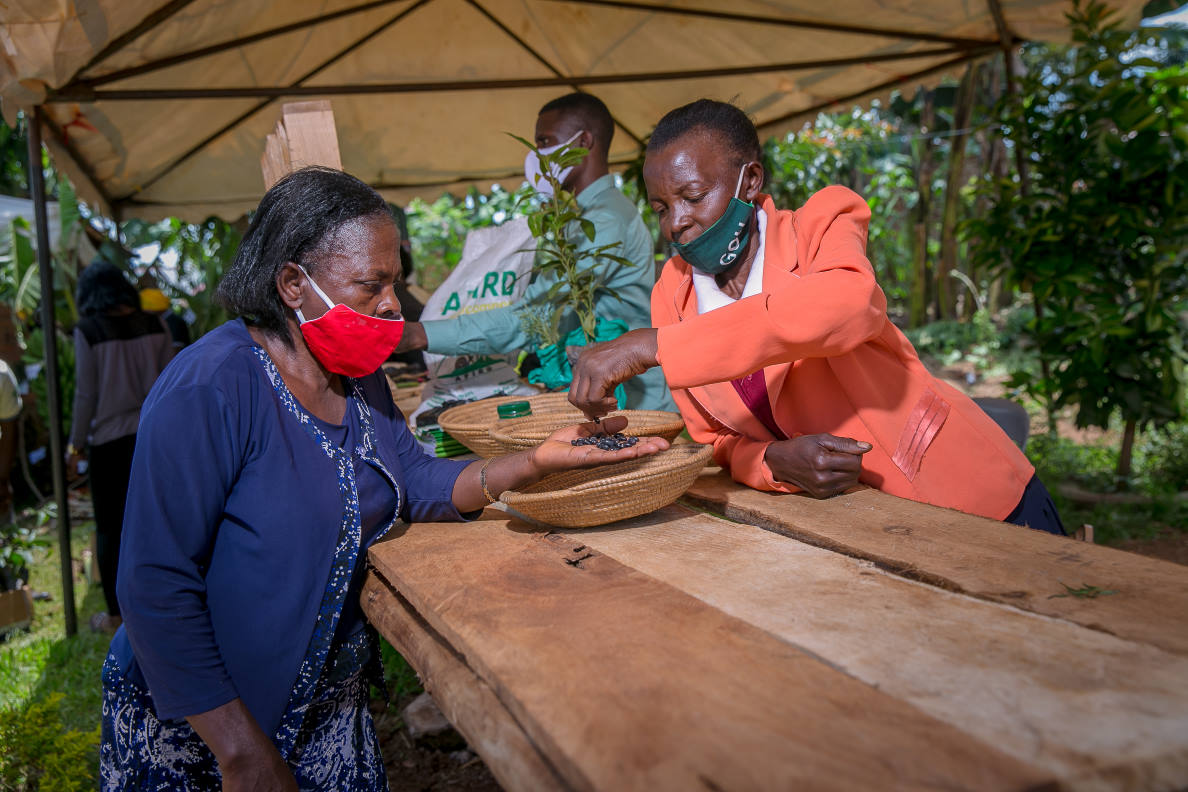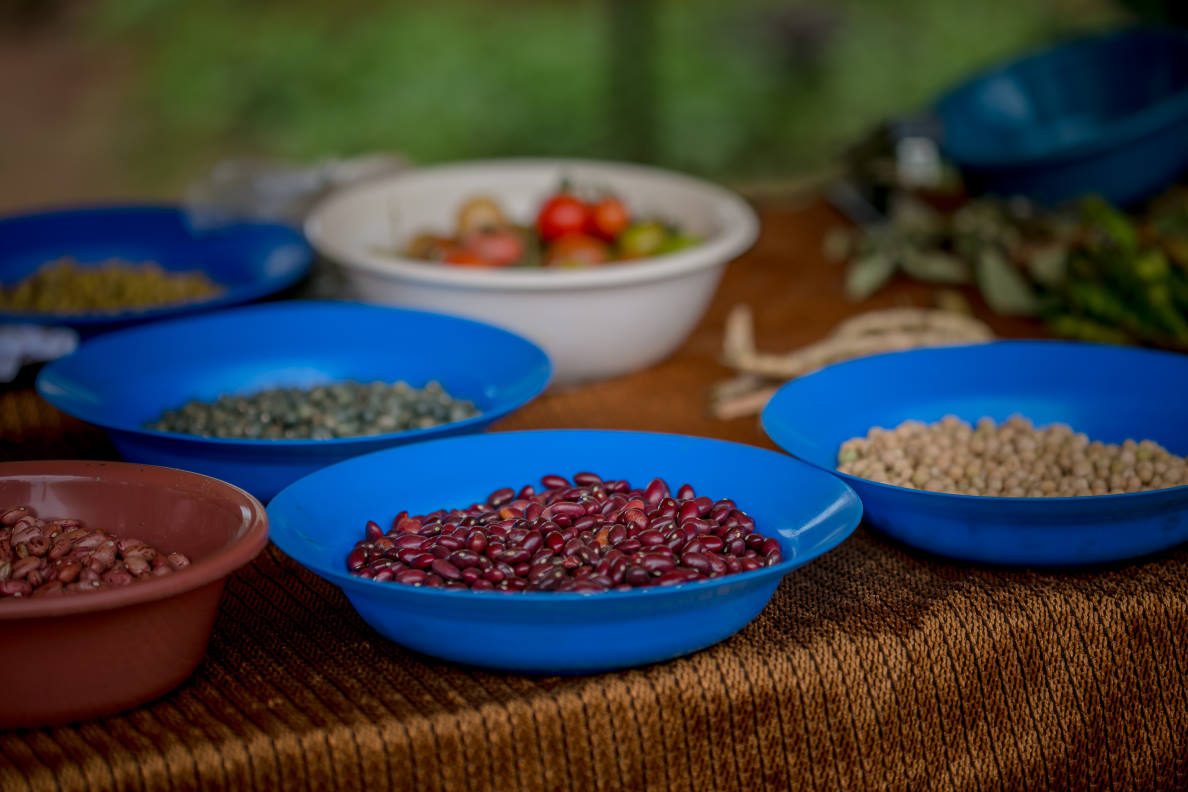Sharing Community in Uganda
This is a guest post from PELUM Uganda (Participatory Ecological Land Use Management), a long-time participant in Green Action Week, supported to do their own storytelling through professional photography and interviews.
Ms. Olivia Muwanga
A small holder farmer from Masaka, of ESAFF Uganda
Olivia Muwanga is a member of Eastern and Southern Africa Small Scale Farmers Forum (ESAFF) an umbrella organization that unites community based small scale farmer organisations and empowers them to become self-reliant.
Muwanga owns a wide variety of indigenous seeds and has been growing plants from indigenous seeds for a long time. According to her, indigenous seeds are cheaper, durable, boost nutrition, preserve culture and protect the environment.
“Unlike other seed types that can only be bought from stores, there is no need to buy indigenous seeds because the seeds can be planted, harvested and replanted year after year,” she said.
In regards to protecting the environment, Ms.Muwanga mentions that indigenous seeds have unique attributes that protect the environment, she particularly highlighted a type of bean variety commonly referred to as ‘Carolina’ whose leaves provide natural fertilizers to the soils whenever they shed off.
During Green Action Week, Muwanga exhibited various types of indigenous seeds such as native maize seeds called ‘Nalwangu’, natural nuts, sim sim and unmodified amaranth seeds among others. Muwanga enjoyed interacting with other farmers and shared her knowledge of indigenous seeds with them with the hope that more farmers will adopt planting of indigenous seeds in order to protect the environment, preserve culture and boost nutrition.
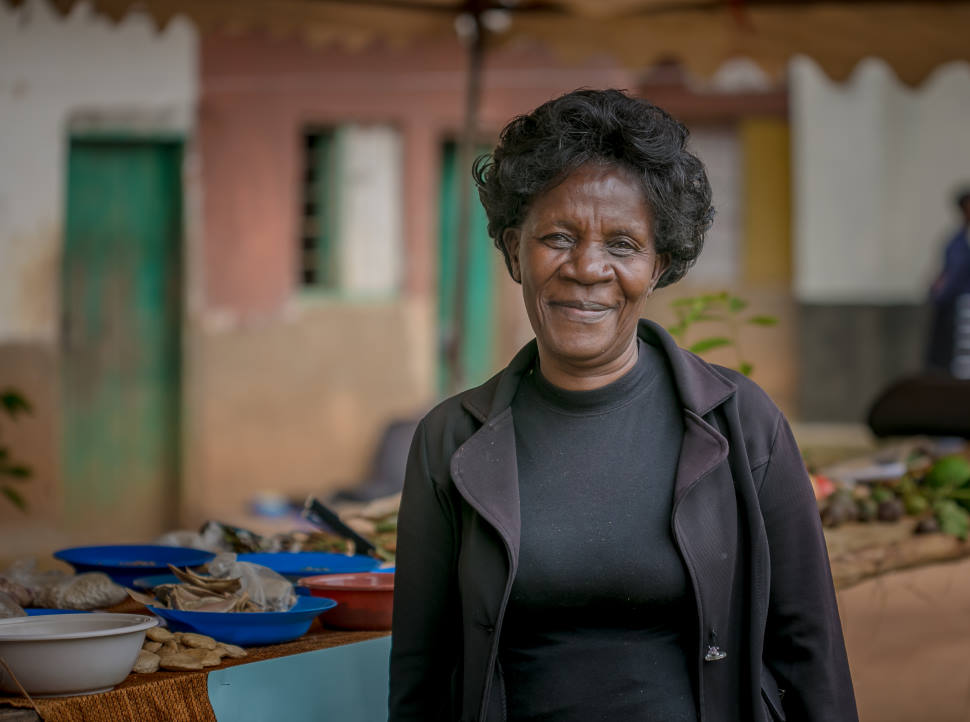
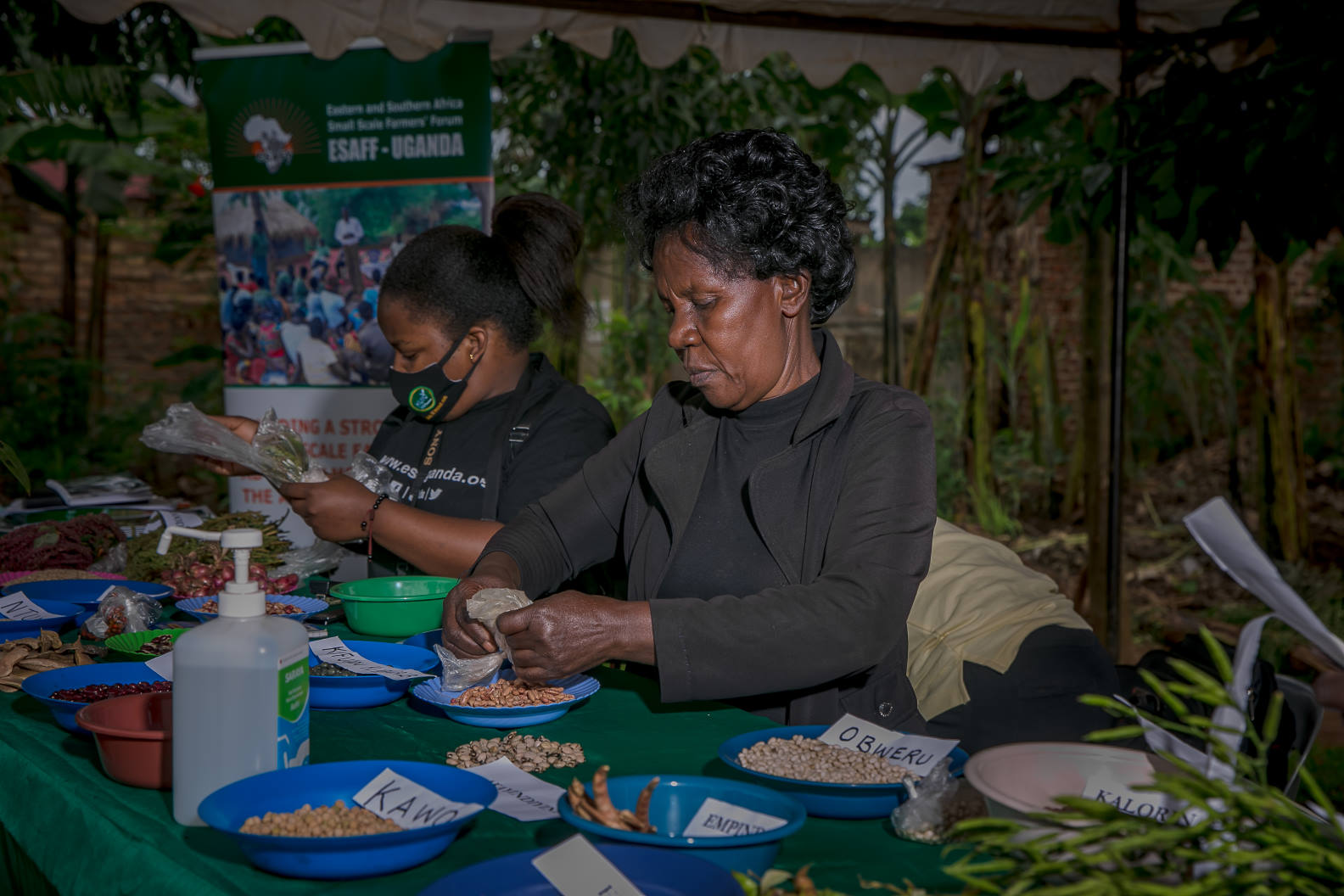
“Indigenous seeds are durable, boost nutrition, preserve culture and protect the environment. Owning my own indigenous seeds is a source of pride to me.”
Olivia Muwanga
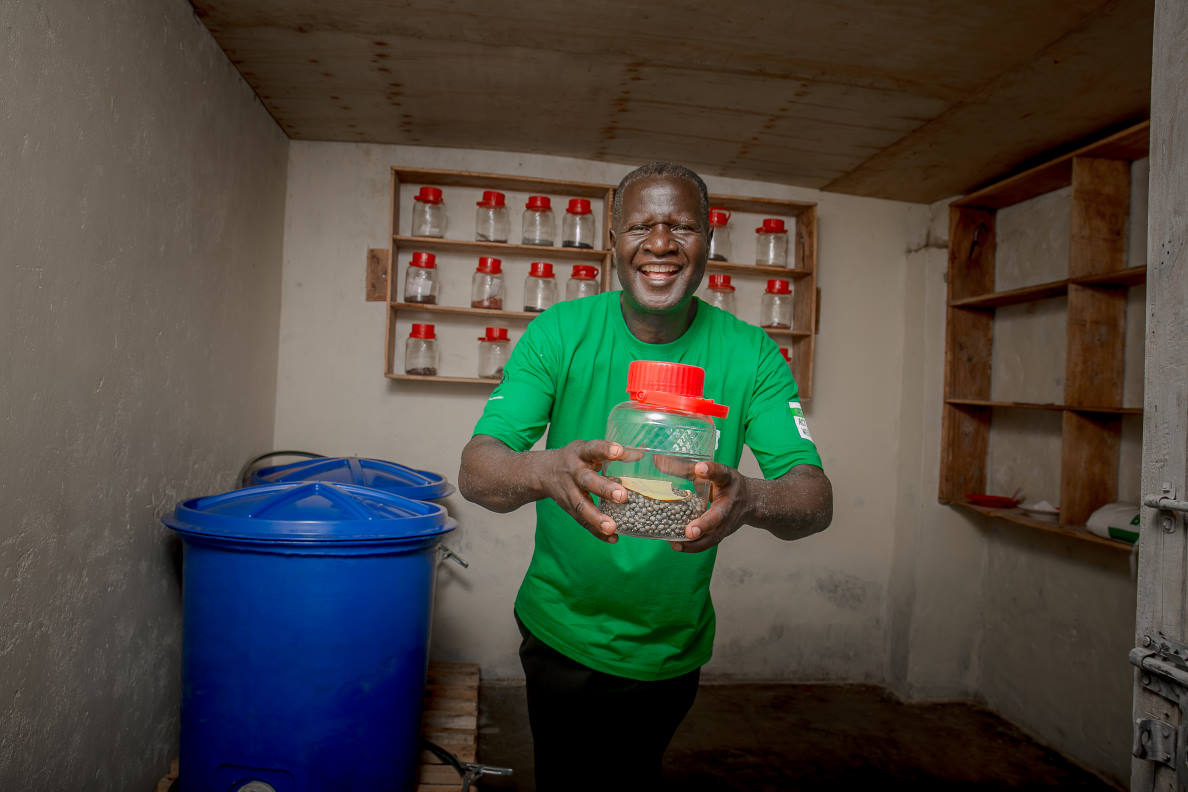
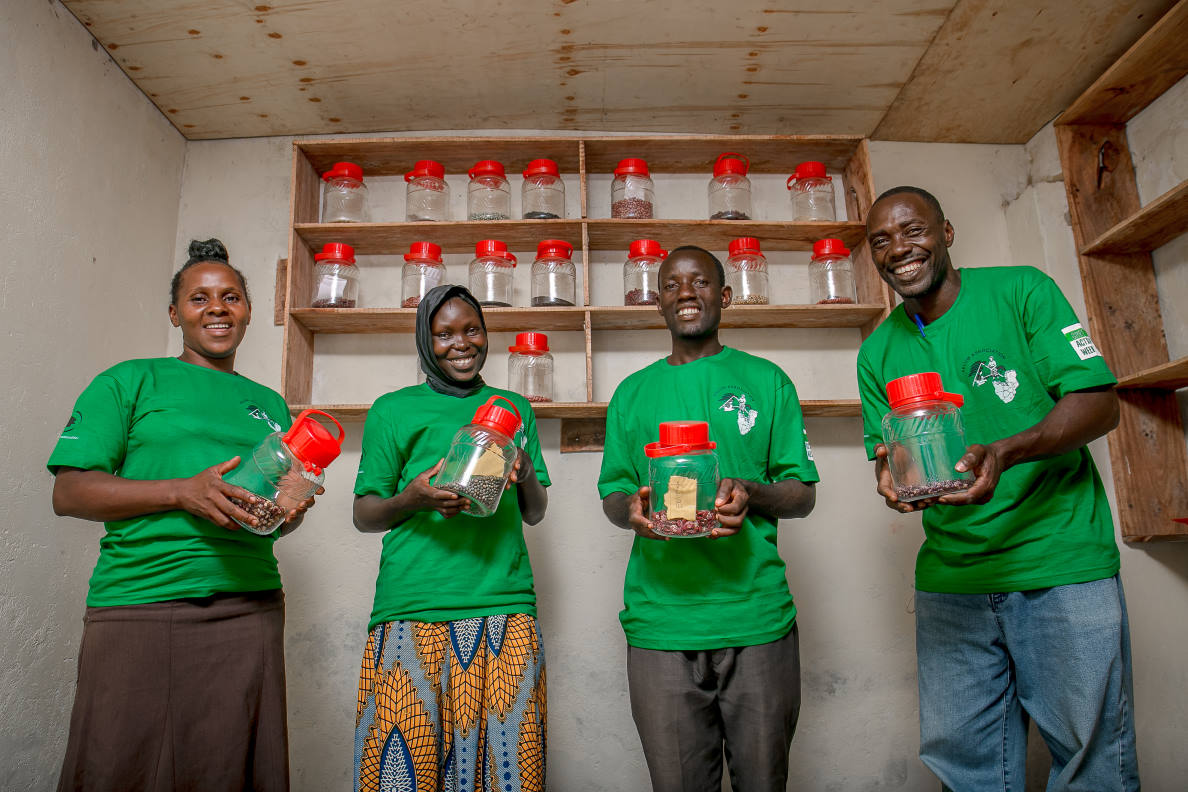
Mr. Mukasa Joseph
A member of Mpigi District Farmers Association (MPFA) which is a member of PELUM Uganda
Mukasa Joseph is a farmer from Mpigi and a member of the Mpigi District Farmers Association (MPFA) an organization that brings together farmers in Mpigi District.
MPFA as an organization is a member of Participatory Ecological Land Use Management (PELUM) a regional network of over 2020 civil society organsations in 12 countries in East, Central and Southern Africa working to improve the livelihood of small-scale farmers and the sustainability of farming communities by fostering ecological land use management. PELUM is among the organisations that were responsible for organizing the 2020 Green Action Week in Uganda.
As part of its assistance to member farmers, PELUM helped MPFA establish a seed bank in Mpigi but the seed bank has been empty since its inception. During the Green Action Week, Mukasa managed to collect seed from various farmers which he stocked in MPFA’s seed bank.
“PELUM helped MPFA set up a seed bank in Mpigi. However prior to the Green Action Week, our seed bank was totally empty and farmers had to purchase seed from stores. Unfortunately at times the seed bought from stores is of poor quality and often yields terrible output,” he said.
Mukasa explained that he was able to collect the seed for MPFA’s seed bank by going stall to stall and encouraging farmers to share or exchange seed with him. “Farmers from within Mpigi and members of MPFA no longer have to buy seed from shops but can get seed from the seed bank. We will encourage farmers to plant, harvest and return seeds to the seed bank in order to keep it afloat. This will help solve the problem of seed insecurity which has been challenging our members.”
“We have been able to collect seed for MPFA farmers’ seed bank during the Green Action Week. The seed availability will help alleviate seed insecurity in Mpigi”
Mukasa Joseph
Mr. Mwanga Disan
From Masaka district, passionate about environmental conservation and enhancing climate resilience
Mwanga Disan is a resident of Masaka district; he is a very passionate advocate for climate resilience and environmental conservation. According to Mwanga, the environment is one of the most important elements of life because it supports the existence of human, animal and plant life.
As part of the Green Action Week celebrations, Mwanga carried tree seedlings from Masaka and freely distributed them to farmers as a way of promoting environmental conservation.
“Trees clean air, filter water and provide habitat to a large percentage of bio diversity. I hope that the farmers will join the fight against environmental degradation and climate change by planting the tree seedlings in their respective areas,” he said.
Mwanga expressed excitement about the fact that all the tree seedlings he carried from Masaka were taken by the farmers. “This proves to me that farmers are passionate about protecting our climate and our environment,” he said.
“The environment is one of the most important elements of life because it supports the existence of human, animal and plant life.”
Mwanga Disan
